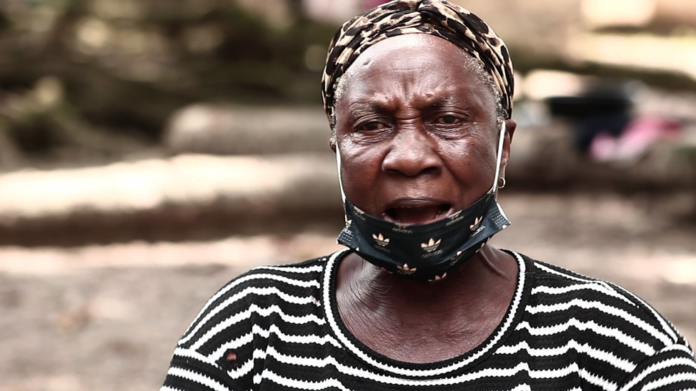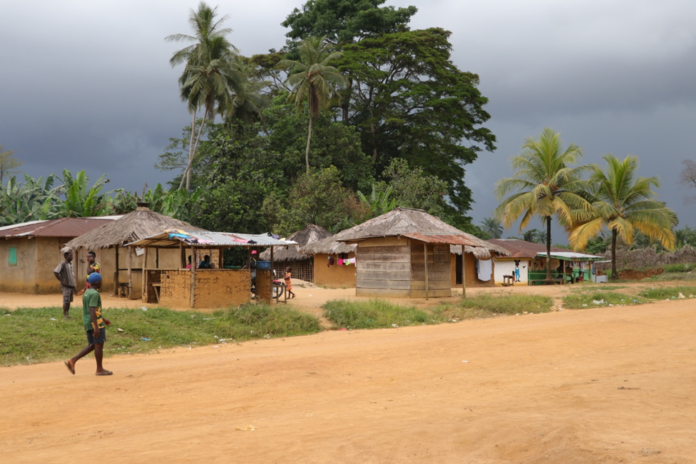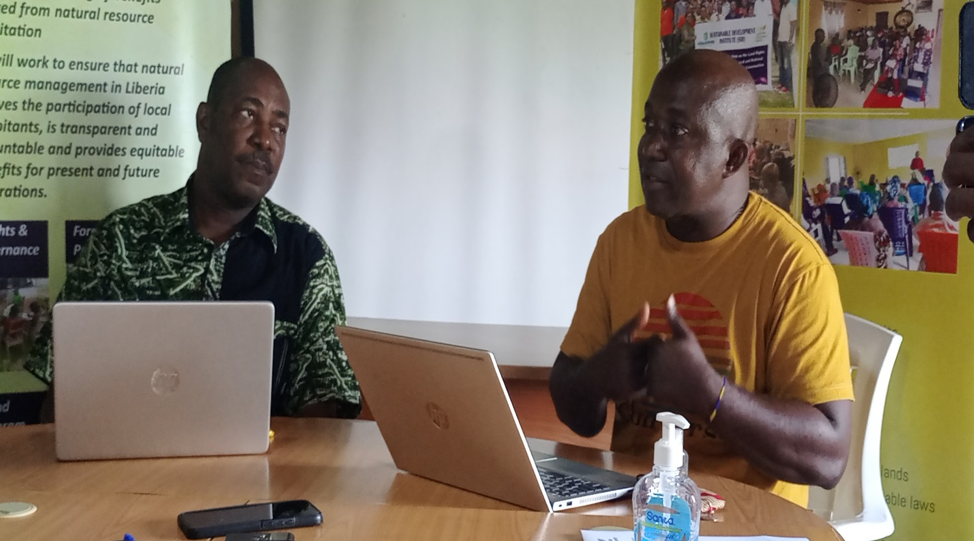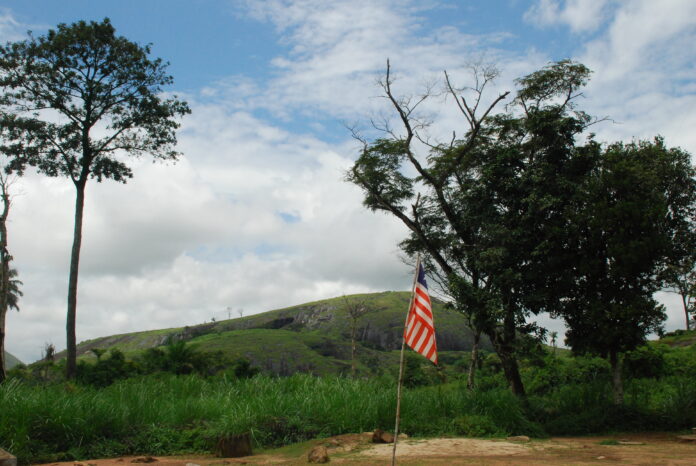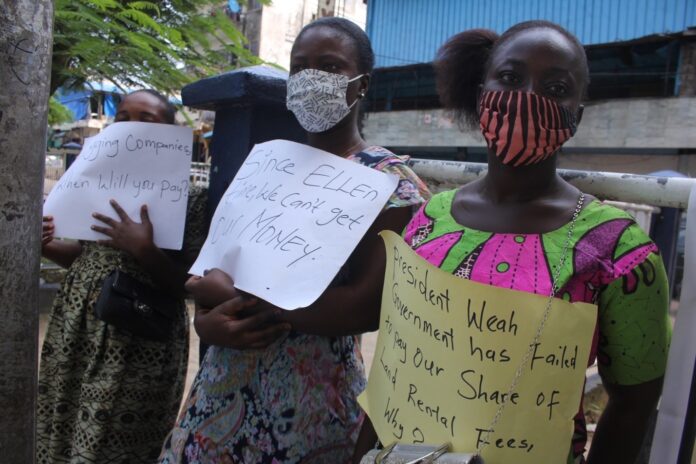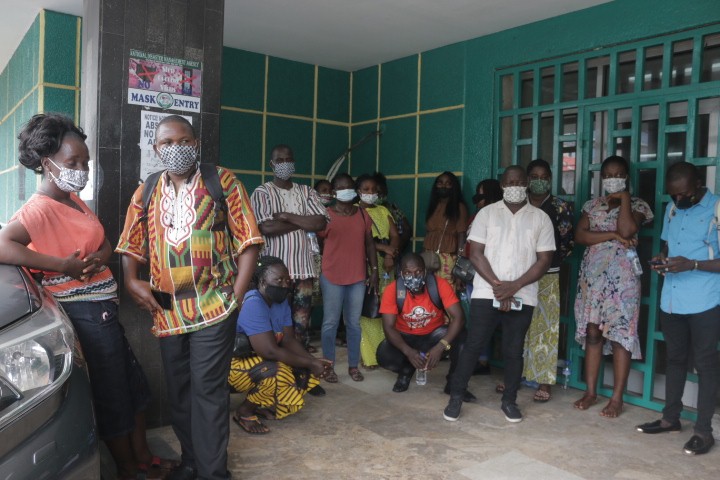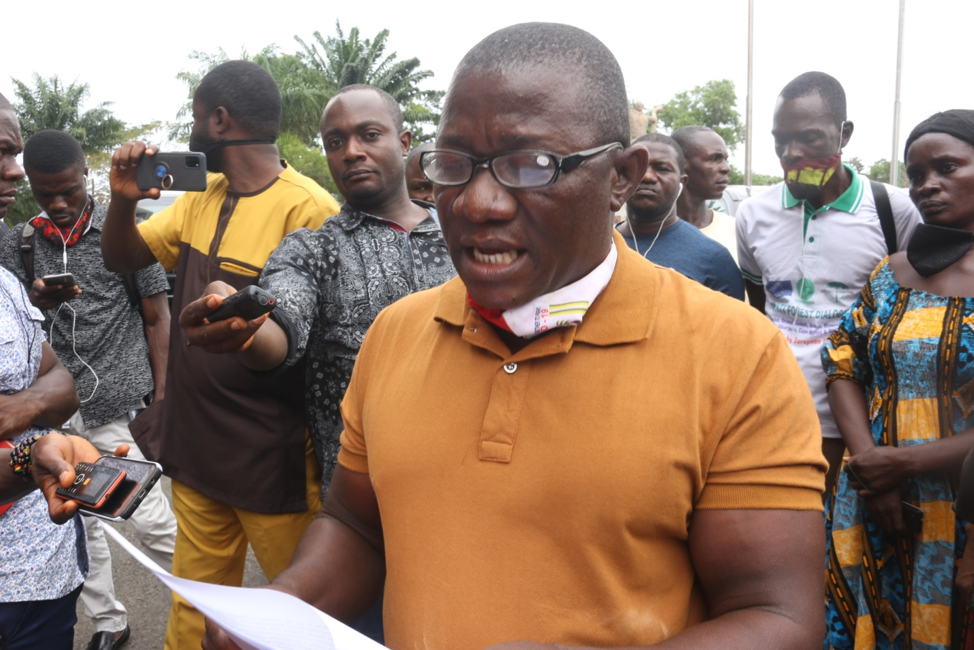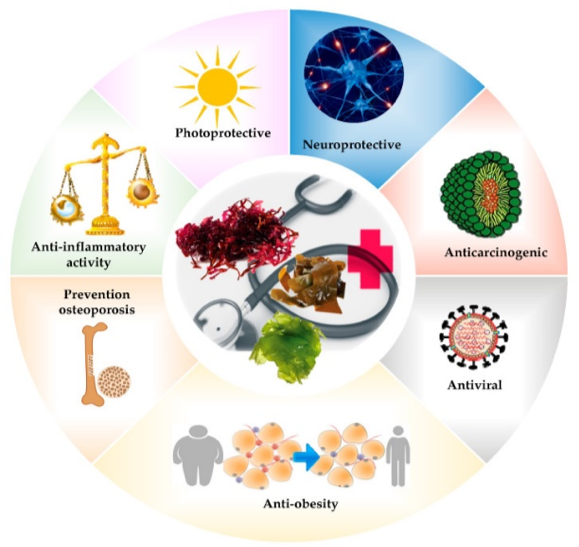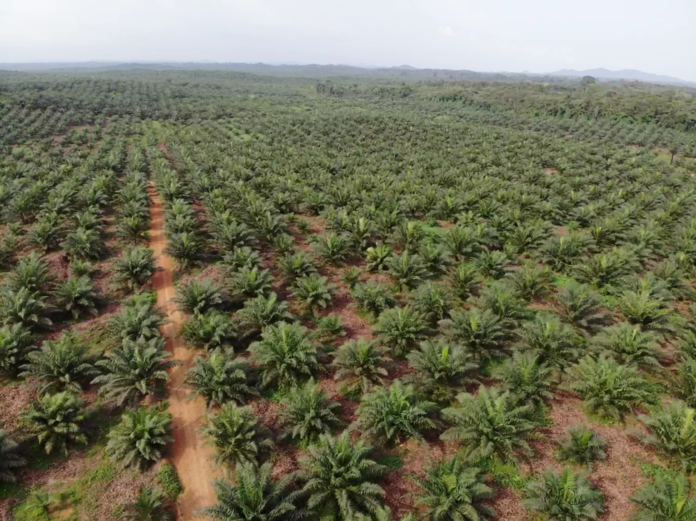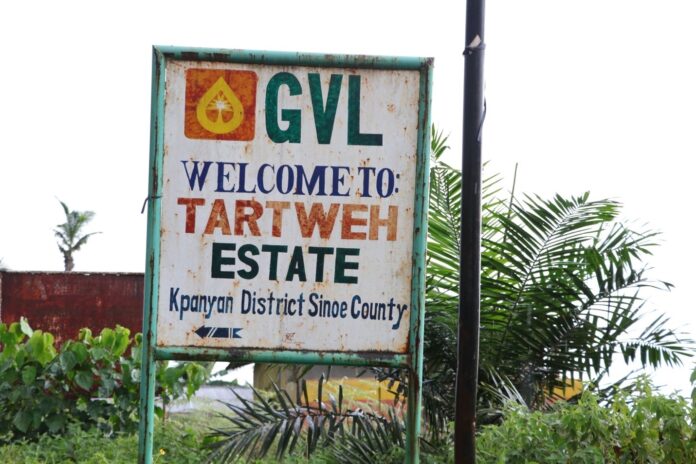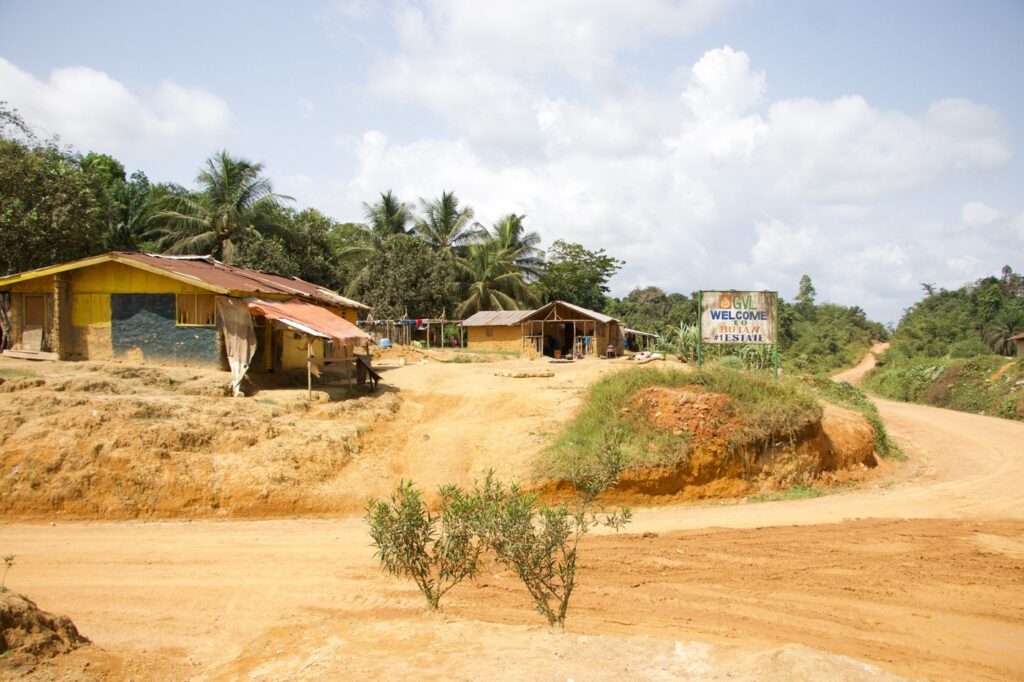Banner Image: Senjeh District Head Zoe Ma Jebbeh Bigboy in an interview with the DayLight on Friday, August 6, 2021. The DayLight/Derrick Snyder
By Varney Kamara
BEHSAO, Bomi County – Traditional leaders in Bomi are threatening to take action against police and security guards of Mano Palm Oil Plantation Investment (MPOI) who allegedly ransacked a Sande shrine last week, sparking a riot in the western countryside.
The police and company guards had stormed the Sande bush in search of stolen palm nuts, according to Ma Jebbeh Bigboy, the head Zoe of the shrine. The incident occurred in Behsao in the Senjeh District. It is considered a sacrilege for men to enter a Sande school, with violators often punished harshly.
“They came and saw things they were not to see,” Bigboy told The DayLight. “The consequence of this is death. If we do not make sacrifices for this, people will die, including me.”
Bigboy demanded that Mano underwrites the expenses for the sacrifice to appease the spirits of the shrine. She listed three tins of red oil, three tins of liquor, three bags of rice, a white sheep and one roll of white cloth as items the company must provide for the sacrifice.
Upon the shrine incident, angry citizens began to riot, vandalizing one of the company’s security booths.
“The angry crowd came and put me outside of the booth. I ran in the bush for safety,” said Mano’s security guard Murphy Billy underneath the damaged cubicle with torn roof and shattered windows.
Billy said he watched the townsmen rioters chase after other security guards.
“I didn’t see any red palms with them. I only saw the crowd running behind them,” he added.
A number of townspeople were arrested and taken to custody after the riot subsided, according to people The DayLight interviewed.
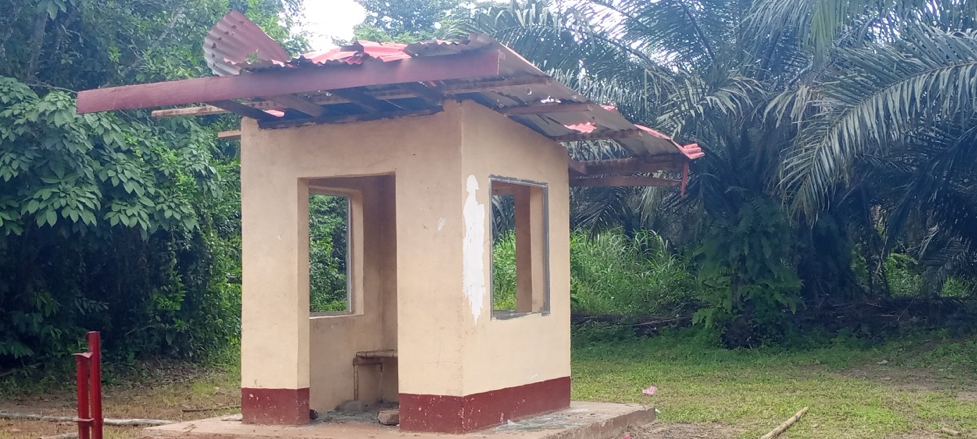
Local police authorities denied that their men entered the shrine. A police officer who only identified himself as OPS Morris at a deport in Gbah Jarkeh told this reporter he did not know of the arrests. He promised a week ago to me with details on the alleged arrest but failed to do so as of Monday. He, however, confirmed receiving a complaint about the destruction of the security booth.
Adama Seh, head of corporate communication at Mano said the company was “investigating and will find a peaceful way out” in an interview with The DayLight.
Konah Harris, clan chief of Senjeh, told The DayLight the county’s traditional leaders were also investigating the crisis.
Mano succeeded Sime Darby in a takeover in 2019. Prior to the takeover, it had been involved in the purchase of crude palm oil and exporting it to various destinations across West Africa, according to its website. The group is a wholly-owned subsidiary of Mano Manufacturing Co, which is principally involved in the manufacturing of soap, bleach and detergents.
Last week’s riot in Behsao is not the first plantation-related incident in Grand Cape Mount County. In October 2011, Sime Darby destroyed crops and culturally significant sites such as graveyards and shrines. Villagers from Bomi and Grand Cape Mount County presented a formal complaint to the Roundtable on Sustainable Palm Oil (RSPO) on violation of their human and cultural rights. The report found Sime Darby liable for not acquiring the constant of communities before expanding on their land. The company agreed to pay the villagers US$1 million within 60 years, with 99,999.99 every six years.
Unlike Sime Darby, Mano is not a member of the Roundtable on Sustainable Palm Oil (RSPO), the global watchdog of the oil palm industry. However, several national and international laws and protocols call for companies’ recognition of cultural rights, including Liberia’s Land Rights Act of 2018, the United Nations Declaration on Human Rights and the 2001 UNESCO Declaration on Cultural Diversity.
“This is a violation of the rights of communities. It violates local and international treaties which speak for the protection of people across communities where oil palm concessions are in Liberia,” said Richard Sam, a regional coordinator with the Sustainable Development Institute (SDI) in an interview with the DayLight.
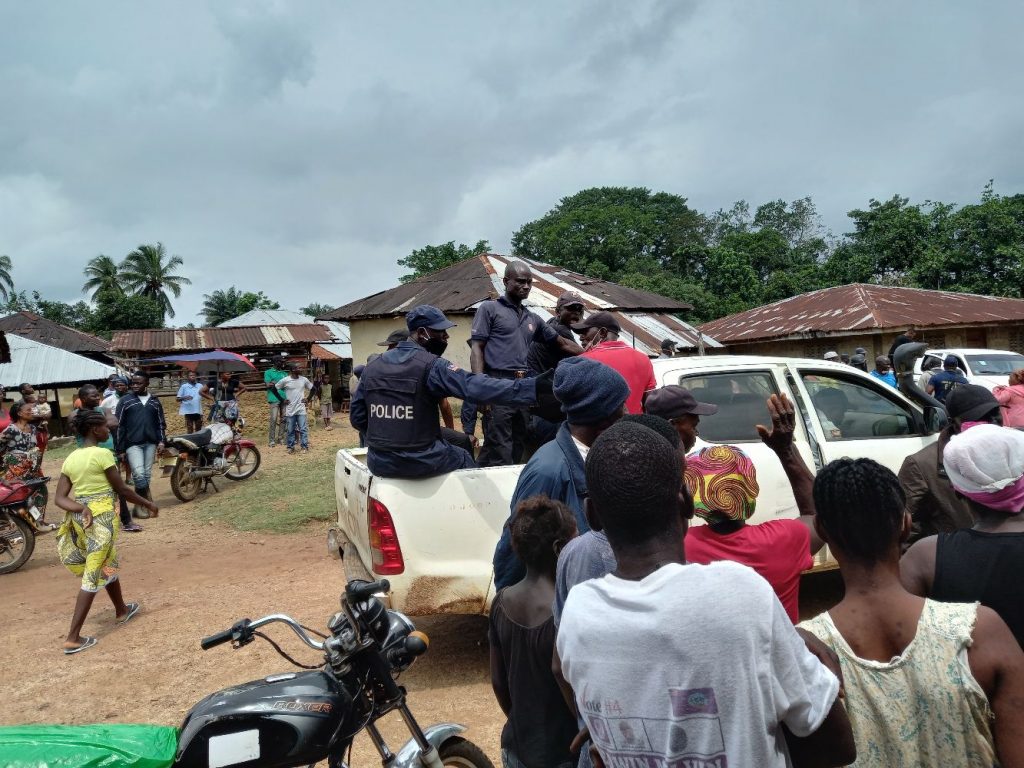
This story has been updated with additional paragraphs and changes to lines in the previous version.

